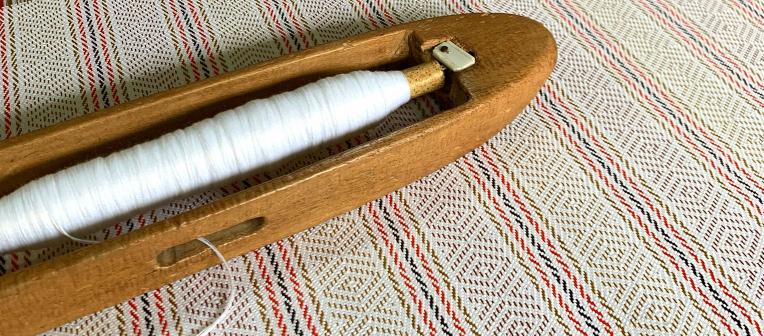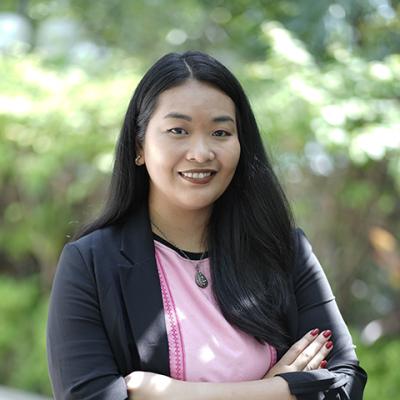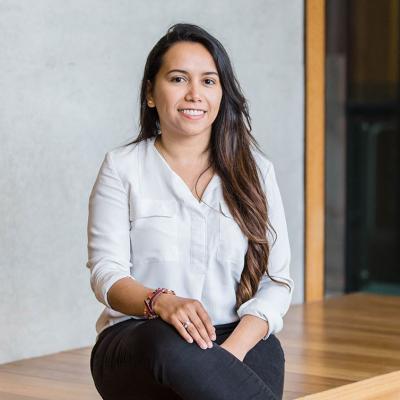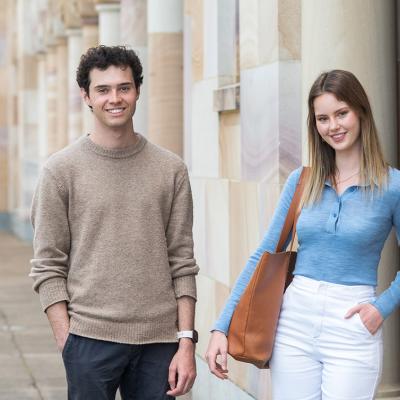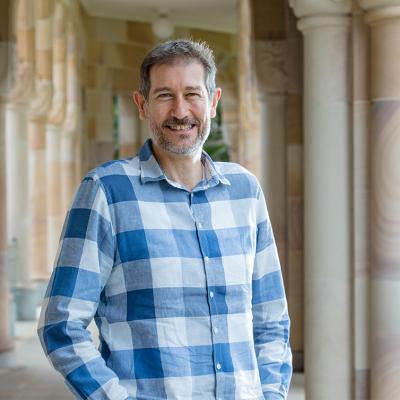The fast fashion industry has a devastating impact on our environment. Understanding this as well as the economic and social impacts of fast fashion in her home country of the Philippines, Ria San Gabriel set out to identify more sustainable alternatives.
Fast fashion facts
According to the World Economic Forum, we send 75% of the textiles we buy to landfill every year (2024). They also uncover that at 10%, the apparel industry contributes more towards global carbon emissions than international flights and marine shipping combined. Perhaps a lesser-known fact is that the fashion and textile industry is responsible for around 1.35% of global oil production. This is because synthetic fibres are produced with fossil fuels (Changing Markets Foundation, Fossil Fashion Report 2021).
In the Philippines, rural artisans and farmers have been integral to the fashion and design industry. These industries contribute significantly to the country's cultural heritage and economic growth and sustainability.
Ria San Gabriel’s prior background working with grassroots communities heightened her awareness of their vulnerability to climate catastrophes in a country highly susceptible to climate change impacts (CGSpace, 2019).
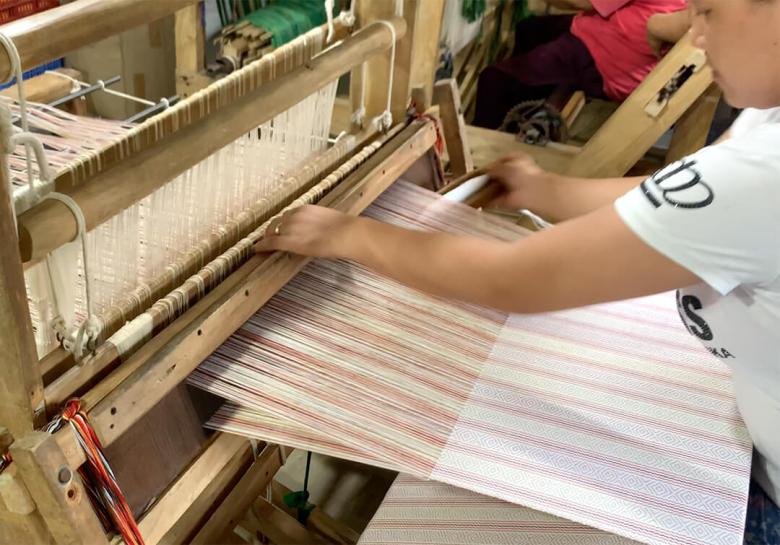
Faced with these challenges, Ria and her future business co-founders began exploring solutions to fast fashion. Through successful trials of the concepts in incubators, accelerators and pitching competitions, and collective refinements achieved during capstone projects, the team officially incorporated Panublix in 2021.
Panublix aims to replace current fashion and design production methods with high quality regenerative fibres and fabrics. It's a sourcing platform that connects creatives, fosters collaboration, and prioritises transparency and traceability. Ultimately, this platform aims to support local communities and creative industries in becoming more sustainable while upholding their cultural heritage.
Keep reading to discover Ria's entrepreneurship story and how her entrepreneurship degree accelerated her success.
Why the Master of Entrepreneurship and Innovation at UQ?
Ria has always valued education. After completing a Bachelor of Science and a Master of Arts, she enrolled in the Master of Entrepreneurship and Innovation through an Australia Awards program.
The Australia Awards in the Philippines feature REAPs (Re-entry Action Plans). REAPS are innovative projects spearheaded by scholars and implemented in their chosen community.
These projects serve as practical applications of the knowledge and expertise awardees acquire during their studies and time in Australia. They also actively contribute to the progress and development of the Philippines.
For Ria, going back to school meant an opportunity to give back.
"Higher education holds immense significance to me. It offers an invaluable chance to broaden knowledge, foster critical thinking abilities and develop innovative solutions to real-world problems," Ria says.
"It also acts as a doorway to personal growth, empowering individuals to follow their passions and create impactful changes within society."
"I wanted to align my academic pursuits with my commitment to create positive change in the entrepreneurial landscape."
How her time at UQ fostered the idea of Panublix
Ria studied UQ’s Master of Entrepreneurship and Innovation as part of her re-entry action plan. The program teaches innovation and entrepreneurship skills relevant to any industry. Students can customise the studies to their individual needs based on 7 focus areas:
- Agri-Food Chins and Product Design
- Biotechnology and Life Sciences
- Business Management and Execution
- Climate Technology and Sustainable Energy
- Data and AI for Business Growth
- Digital Design and Human-Centred Transformation
- Social Enterprise and Community Impact.
Ria valued the chance to align her studies with her interests and career aspirations. The courses she studied expanded her skillset and provided insight into creating user-centred solutions in the fast-paced realm of technology and entrepreneurship.
"I highly recommend UQ for its prestigious academic reputation, stimulating learning environment and inclusive community," she says.
“The interdisciplinary nature of the Master of Entrepreneurship and Innovation presents unparalleled opportunities for students to excel in their chosen field.”
The capstone project that accelerated Ria’s creative industries idea
The Master of Entrepreneurship and Innovation allowed Ria to further develop and refine the concept of Panublix. All students in the program complete a capstone project called Lean Start up for Entrepreneurship and Innovation. This course teaches students to create and validate a business model. To do this, they conduct in-depth customer interviews, rapid prototyping and agile development.
Ria says the Lean Startup methodology had profound value in their startup journey. It helped them highlight their commitment to continuous testing of assumptions, actively seeking feedback and making data-driven decisions. This iterative approach facilitated numerous pivots, enabling them to refine their ideas and make necessary adjustments. Consequently, despite operating with limited resources, they observed consistent growth and ongoing progress.
Throughout the project, sustainability shifted from a peripheral concern to a central and integral focus within their startup framework.
What’s next for Ria and Panublix?
Since it began, Panublix has grown by enabling designers to ethically source and showcase local textiles, fostering sustainability and celebrating cultural legacy. In 2022, according to the Panublix website, the platform was responsible for:
- 80 brands, designers and crafters adopting tropical textiles
- 190 crafters, weavers and designers learning about sustainable sourcing and design
- 542kg of tropical yarns sold, replacing polyester-based fibres
- $113K raised for the economic development of artisan enterprises.
In recognition of these achievements, Ria recently received a research and development grant from the University of the Arts London’s Fashion, Textiles, and Technology Institute (FTTI), in partnership with the British Council.

Ria and team showcasing Panublix products at a networking event. This startup aims to combat the social and economic impacts of fast fashion clothing production in the Philippines.
With this grant, Ria will launch a scoping project to map key stakeholders within the weaving industry in both the UK and the Philippines. She'll also work to identify and analyse the existing growth impediments within this sector.
"This R&D grant is a pivotal milestone for Panublix and my personal growth," Ria says.
"It not only validates the significance of our mission. It equips us with the necessary resources and support to enhance and refine our work."
"As an international research grant, it has expanded our horizons. It helps to facilitate valuable opportunities for collaborations and networks and enhancing the overall growth and credibility of Panublix."
There’s no doubt that Ria will continue to draw on her masters in entrepreneurship to push for positive change even beyond the sustainable fashion industry.
"One of the aspects I truly cherish about my work and career is the ability to pursue what I am truly passionate about – innovation, tech4good, and women’s economic empowerment," she says.
"Working on projects and initiatives that align with my values and interests gives me a sense of purpose and fulfilment. It allows me to channel my enthusiasm and dedication into making a tangible impact in areas that matter to me."
"I want to contribute to a more sustainable and inclusive future by harnessing technology and entrepreneurship to benefit everyone."
Are you interested in exploring your interest in innovation and entrepreneurship?
Here’s Ria’s advice for anyone considering a Master of Entrepreneurship and Innovation:
- Adopt a growth mindset to embrace learning and take risks.
- Engage in practical experiences such as joining UQ Ventures programs to apply your knowledge and skills and build connections.
- Network with peers and industry professionals to broaden your perspective and create opportunities for collaboration and mentorship.
Discover where a Master of Entrepreneurship and Innovation could take your career.

